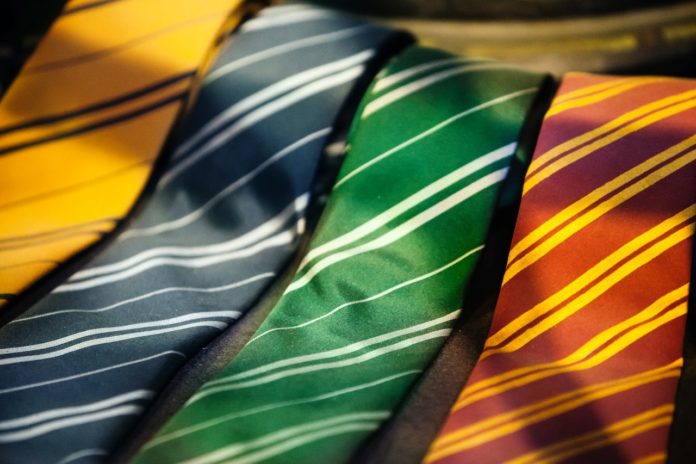School ties, blazers and caps have all been part of traditional uniforms here in the UK. While over time, many educational institutions have slackened their rules or abolished uniforms entirely, not everyone agrees with this approach. Some MPs have been outspoken on the subject, insisting that the school tie is a valued British custom worth maintaining.
It has been argued that learning to take pride in their appearance at an early age and understanding the value of making the right impression can help students enjoy a successful career in later life.
Table of Contents
Why are schools suggesting that school ties should be retired?
Since last year, schools, parents and politicians have supported an agenda on removing ties and blazers from the regular school uniform to maintain higher hygiene levels during the COVID-19 pandemic. Many believed that it was not reasonable for parents to wash school blazers and ties every day. Since scientists recognised that coronavirus remains on material surfaces for up to 24 hours if not cleaned with anti-microbial disinfectant, the clothing items presented a potential health risk.
However, MP and Chairman for the All-Party Parliamentary Group for Independent Education, Andrew Lewer, fears that the loss of the tradition of the school uniform would be a travesty. He argued that the findings of health expert Professor Linda Bauld suggest only a minimal coronavirus risk associated with school uniforms.
In light of the struggling UK economy during the pandemic, another growing issue is cost. MP for Northwich, Mike Amesbury, petitioned for lower uniform costs, resulting in the Education (Guidance about Costs of School Uniforms) Act 2021, which has successfully made its way through the House of Commons and Lords before receiving Royal ascent this year.
While this legislation will not ban ties and blazers, it aims to make school uniforms more affordable and accessible for families of different incomes.
Hygiene and school ties
Professional manufacturers of school ties now make products that are easily machine washable and quick-drying, ensuring the highest hygiene standards are easier for parents to maintain. Additionally, school ties are now produced using polyester yarn derived from recycled plastic. Dubbed “eco-ties”, each of these forward-thinking solutions can save two plastic bottles from ending up in the Earth’s oceans or landfills.
The lasting value of school ties
To this day, school ties are a symbol of academic achievement and status. From schoolhouse ties to school sports team ties, wearing these signatory items of clothing is often a point of pride for their owners. Many of Britain’s oldest schools can be recognised by emblems or patterns used on the ties worn by their pupils. An old boy’s tie or old school tie is also allowed to be worn by pupils after they leave school and features the institution’s colours. This allows fellow alumni to recognise their shared education. They are often worn at class reunions, school memorials and other commemorative occasions.
Replacing old school ties
Over time, old school ties can become worn and frayed. Traditional materials can degrade, leaving neckwear looking shabby and uncared for. Fortunately, expert tie makers can now produce authentic replica ties to match existing style. Customers can supply an image of their old school tie, and in-house designers can recreate patterns, colours and emblems, depending on requirements.
A symbol of style and sophistication, the tie continues to be an effortless way to smarten up our appearance. The school tie is typically the first introduction many people have of wearing this traditional item of clothing. Even in our modern world, where casual wear is increasingly more common, it is still worn as a sign of respect and commitment at interviews, funerals, weddings, special events and other important occasions.














